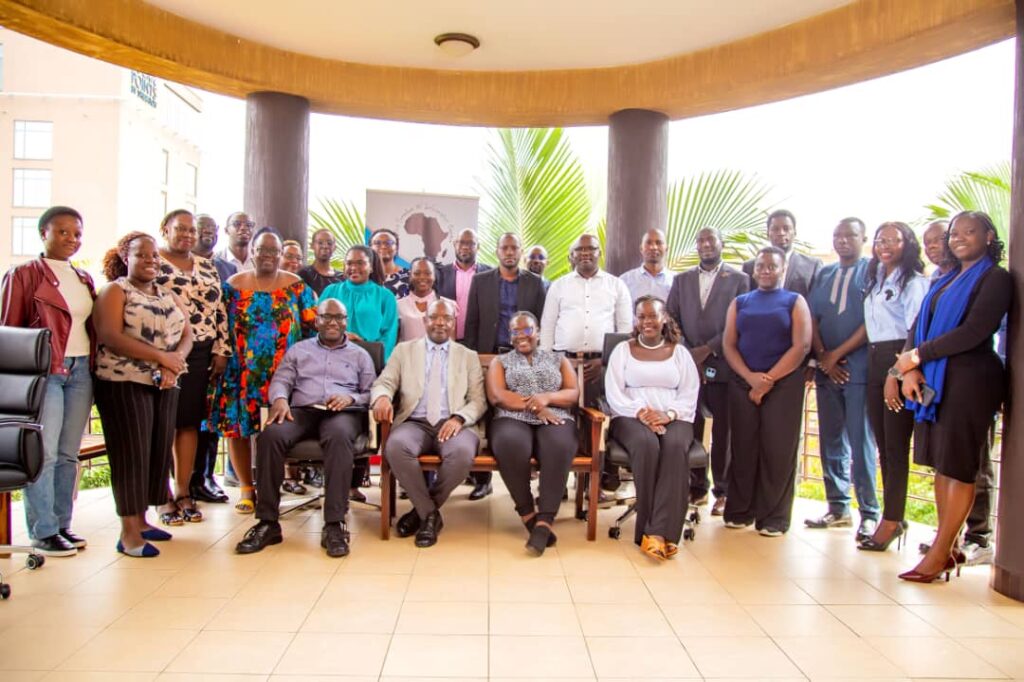
 Mama FM
Mama FM

 Mama FM
Mama FM
28 July 2025, 9:34 am

By Laila Ndagire
The Africa Freedom of Information Centre (AFIC) recently hosted a stakeholders’ engagement at Protea Hotel in Kampala on July 23, 2025. The event brought together key players from the journalism industry, media regulatory bodies, civil society organisations, policymakers, academia, and development partners to discuss the critical topic of harnessing Artificial Intelligence (AI) in journalism while protecting press freedom and democratic values.
AFIC presented a policy brief titled “Artificial Intelligence and Journalism in Uganda: Opportunities, Challenges, and Policy Pathways,” which highlighted the potential benefits of AI in journalism, including supercharging investigative journalism, fighting misinformation, giving voice to the marginalised, and lightening the load in newsrooms.
However, the policy brief also identified challenges associated with AI in journalism, such as, disinformation, bias, copyright issues, transparency, privacy concerns, and the tech divide.
During the discussion, several stakeholders shared their insights on the use of AI in journalism. Carol Nakazibwe, Editor at The Observer, emphasised the timeliness of the discussion, saying:
“The discussion is very timely. We are using AI in the newsrooms. It is good at generating headlines, graphics, and statistics for reports, etc., but it is also being abused grossly by online publications who use it to write 100% of the content, leaving out the human touch.”
Ayebare Harriet, Editor at the Daily Monitor, highlighted the benefits of AI in generating story ideas and enriching content, but also warned about the risk of laziness among journalists:
“Sometimes you want to write but feel like everything has been written about. AI has helped journalists get a number of story ideas and also enrich the stories with more information. However, it is making some journalists very lazy in writing.”
Dr. Ivan Lukanga, a lecturer at Makerere University’s Department of Journalism and Mass Communication, shared concerns about the use of AI in academia and the need for a policy framework:
“Universities are struggling with AI and have had to demand that students redo their dissertations because they used AI. Makerere University is developing a policy on using AI since the government doesn’t have one in place. We are, however, balancing the use of AI by having assignments in lecture rooms.”
Meddy Kaggwa, Head of Multimedia and Content at the Uganda Communications Commission, emphasised the need for learning and sector-specific support:
“There is a lot of learning that needs to be done for people to adopt AI. UCC partners with different people to train in AI, but we cannot determine the needs of every sector. Therefore, we call upon the different stakeholders to approach us with their needs for the necessary support.”

Gilbert Sendugwa, Executive Director of AFIC, highlighted the importance of embracing AI and addressing the gaps in the law and knowledge:
“AI is in the current but so much about the future. It presents enormous opportunities for media practitioners and other stakeholders, we should therefore, embrace it and take full advantage of it”
He added that the discussion has identified gaps in the law, policy and knowledge not only for journalists but other stakeholders as well.
Gilbert urged government to take a big interest in AI, not only in regulating it but also in facilitating to bridge the knowledge gaps.
Uganda is slowly embracing Artificial Intelligence (AI), ranking 104th out of 141countries in AI readiness, according to the IMF’s 2023 AI Preparedness Index.